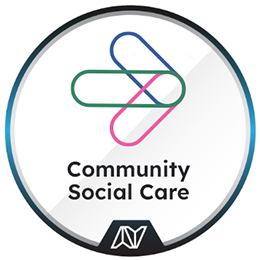
minutes average completion time
An Introduction to Community Social Care
In this micro course, we will explore the different aspects of community social care, including some of the people that might access this type of service. We will also look at just a few of the exciting opportunities and careers that exist within community social care.
What is Community Social Care?
Community social care refers to a range of services and support provided within the community, aimed at helping people to maintain their independence, improve their quality of life, and remain in their own homes for as long as possible.
It includes long-term support in people’s own homes (home care) and reablement services to help people regain independence. There is a wide range of services that may be available, including:
- Help with personal tasks – e.g. bathing, washing, getting up and going to bed, shopping and managing finances.
- Help with general domestic tasks, including cleaning and cooking
- Adaptations to the home e.g, installation of a stair lift, lowering work tops in the kitchen, installing handrails in the bathroom.
- Help with accessing the community and taking part in leisure/social activities.

Did you know?
As of 2024, the average cost of home care in the UK is between £23 to £34 per hour.
People that might need Community Social Care
Community social care is for individuals who are unable to care for their own daily needs independently. This type of care might be needed on a long-term or short-term basis.
Community social care may be needed for a range of different reasons. Care needs that individuals may have include:
- Learning disabilities
- Dementia
- Physical disabilities
- Mental health issues
- Physical health issues
- Sensory impairment
- Recovery from an accident or operation
- Addictions i.e. alcohol and drugs
More information:
Learning disabilities – Learning disability is a reduced intellectual ability and difficulty with everyday activities – for example household tasks, socialising or managing money.
Dementia – Dementia affects the way a person’s brain works. When a person has dementia, their brain starts to forget the things they have learned or has difficulty putting them in the right order.

Physical disabilities – Physical disability is a substantial and long-term condition affecting a part of a person’s body that impairs and limits their physical functioning.
Mental health issues – if you go through a period of poor mental health, you might find the ways you’re frequently thinking, feeling or reacting become difficult, or even impossible, to cope with. This can feel just as bad as a physical illness, or even worse.
Physical health issues – This could include conditions such as chronic arthritis, cancer, heart disease and Chronic Obstructive Pulmonary Disease (COPD).
Sensory impairment – Sensory impairment is when one of your senses, for example sight or hearing, is no longer normal.
Recovery from an accident or operation – After an accident or operation, someone might need domiciliary care to assist with daily activities and medical needs until they regain their independence and are able to perform tasks on their own again.
Addictions – Addiction is defined as not having control over doing, taking or using something to the point where it could be harmful to you.
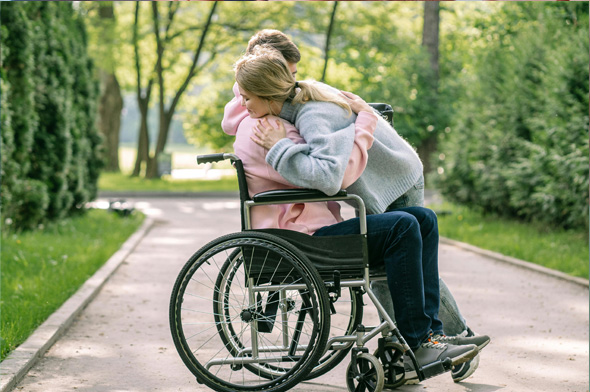
Did you know?
Studies have shown that individuals who are able to remain in their own homes, tend to live longer and report higher levels of satisfaction, compared to those who move into a care home setting.
Make a note
Who might need community social care?
Types of Community Social Care
The different types of Community Social Care include:
Home care
Home care, also called domiciliary care, is when care workers travel to the homes of people in need of assistance. This is arranged through the local council or through private agencies.
Home care is ideal for people who want to stay living in their own homes but need some help with day-to-day living.
Daily care visits typically last for 30 minutes to an hour and can occur several times a day. Some individuals may have longer visits that last several hours at a time, which allow the care worker to assist with a range of daily tasks. If an individual needs someone with them around the clock, they may have a live-in carer, which is where a trained care worker lives with them in their home.
The daily activities that home care services provide support with include:
- Personal care: Helping with bathing, dressing, grooming, and toileting
- Medication: Monitoring and assisting with medication
- Shopping and meal preparation: Either taking the individual shopping or doing it for them. Preparing breakfast, lunch and dinner.
- Domestic tasks: Helping with cleaning and other routine household tasks
- Social and physical activities: Supporting people with social and physical activities
- Appointments: Booking and accompanying people to appointments
- Condition monitoring: Taking an individual’s temperature, pulse, respiration, and weight

Reablement
Reablement services help people to retain or regain their skills and confidence so they can learn to manage again after a period of illness or whilst recovering from an operation. The service is usually provided in the person’s own home by a team of social care professionals.
This approach aims to assist people to continue to live in the way that they want to and to do ordinary activities like cooking meals, washing, dressing and going out of the house.
Reablement might be used to support people to be discharged from hospital, to prevent them going back into hospital or to enable them to continue living at home. It is typically provided for up to 6 weeks, but some people will not need it for as long as this.
Example – An individual has a hip replacement and before leaving the hospital they are identified as needing further care. Their local reablement service is able to provide them with support to help them regain their confidence and independence.
They work with them to provide a personal goal plan for their recovery. Their care and support package may include daily living tasks, such as:
- Getting around at home (including moving from room to room or from a bed to a chair)
- Washing and dressing
- Meal preparation
- Medicine/treatment schedule
- Caring for pet(s)
- Light household duties
What is the difference between home care and reablement?
Home care is usually a long-term service that provides ongoing support; whilst reablement is a short-term, goal-oriented service that helps people regain their independence and skills, after an illness, accident or operation.
Reablement is a “doing with” model, while home care is more often a “doing for” model.

Home care is ideal for people who want to stay living in their own homes but need some help with day-to-day living.
Reablement services help people to retain or regain their skills and confidence so they can learn to manage again after a period of illness or whilst recovering from
an operation.
Example careers in Community Social Care
Click on the buttons below to find out about the different jobs in Community Social Care available…
Home care
Reablement
Did you know?
Community care has been provided in the UK since the 13th century, but it grew rapidly after the Second World War because there was little money to build hospitals and care homes.
Make a note
What is the difference between home care and reablement?
Care worker
The role of a care worker is to support people with all aspects of their day-to-day life. In this role you could support people with their social and physical activities including:
- Eating and drinking
- Personal care
- Attending appointments
- Shopping and money management
- Monitoring health conditions
- Medication
Personal assistant
Working as a Personal Assistant (PA) in care can be rewarding, challenging, and varied, as well as offering flexible working patterns to help you find a suitable work-life balance.
As a Personal Assistant, you will support individuals in their own homes and out in the community; this may include supporting them in maintaining their physical, mental, emotional, and/or social wellbeing.
The opportunities for PA placements are varied, and can include a range of duties and responsibilities. This can include:
- Providing companionship and facilitating socialisation
- Aiding access to the community and local attractions
- Providing personal care including support to dress, wash and bathe
- Domestic tasks like cooking, cleaning, meal preparation and shopping
- Assisting with travel to appointments and carrying out day to day errands or tasks
As a Personal Assistant in Care, you can either be Self-Employed or Employed by those in receipt of care.
Senior care worker
In this role you would provide hands-on care and also lead and support a team of care workers. Your responsibilities could include:
- Working in the community, providing high-quality care to individuals
- Overseeing care practices and procedures to ensure compliance with statutory requirements and company standards
- Leading, mentoring and supporting a team of carers, providing regular guidance and training
- Providing input into the care planning process, working closely with individuals, families, and healthcare professionals
- Ensuring care delivery is person-centered, safe, and in line with regulatory frameworks and best practices.
Deputy manager / team manager
Deputy managers lead and manage the care team, helping them to deliver high standards across the organisation. You’ll also play an important role in supporting the manager of the service. As a deputy manager you could:
- Support your manager to run your workplace, including covering in their absence and ensuring standards of care are maintained
- Ensure the service safely plans staffing levels and complies with legislation and regulatory requirements
- Undertake care assessments of people needing care and support, as well as working closely with healthcare professionals and others
- Help the service to recruit and develop new care workers, supporting, supervising and performance managing them
Registered Manager
A registered Manager has overall responsibility for managing the business, the team within it and the quality of care being delivered. Responsibilities include:
- Leading and managing staff so they can perform their roles safely and to the best of their ability
- Managing budgets and contracts
- Making strategic decisions about the future and growth of your care service
- Leading on specific projects
Reablement support worker
Reablement Assistants work within the community, usually in peoples’ homes, to promote independence and choice for people by helping them to work towards their reablement goals as set out in their support plan. This role will involve working closely with carers and others (like a Team leader and Occupational Therapists).
Reablement team manager
The Team Manager is responsible for leading and managing delivery of a front line care service, taking responsibility for practice standards, customer service and quality, resources and efficiency, performance and processes. They lead, establish and maintain local joint working relationships with other service providers and partner agencies, making sure the views and needs of the people using their services are taken into account in the delivery and development the services.
Occupational Therapist
An Occupational Therapist (OT) can help individuals to manage everyday tasks and issues in the home. They may give advice on:
- Different ways to manage tasks based on the individual’s needs
- Equipment that might be able to help
- Changes that could be made to an individual’s home
What values are important in Community Social Care?
Social care is built on a foundation of core values that guide the behaviour and practices of caregivers and professionals.
These values ensure that individuals receiving care are treated with respect, dignity, and compassion. Here are the key values in social care:
1. Dignity and Respect:
- Treat every individual with honour and respect, recognizing their unique worth and human rights.
- Ensure that care is delivered in a way that maintains the person’s dignity and self-esteem.
2. Independence:
- Encourage and support individuals to make their own choices and decisions.
- Promote self-reliance and empower individuals to take control of their own lives as much as possible.
3. Choice:
- Respect the right of individuals to make choices about their care and support.
- Provide information and options so that individuals can make informed decisions.
4. Privacy:
- Respect the privacy of individuals, ensuring that personal information is kept confidential.
- Provide care in a way that protects the individual’s personal space and boundaries.
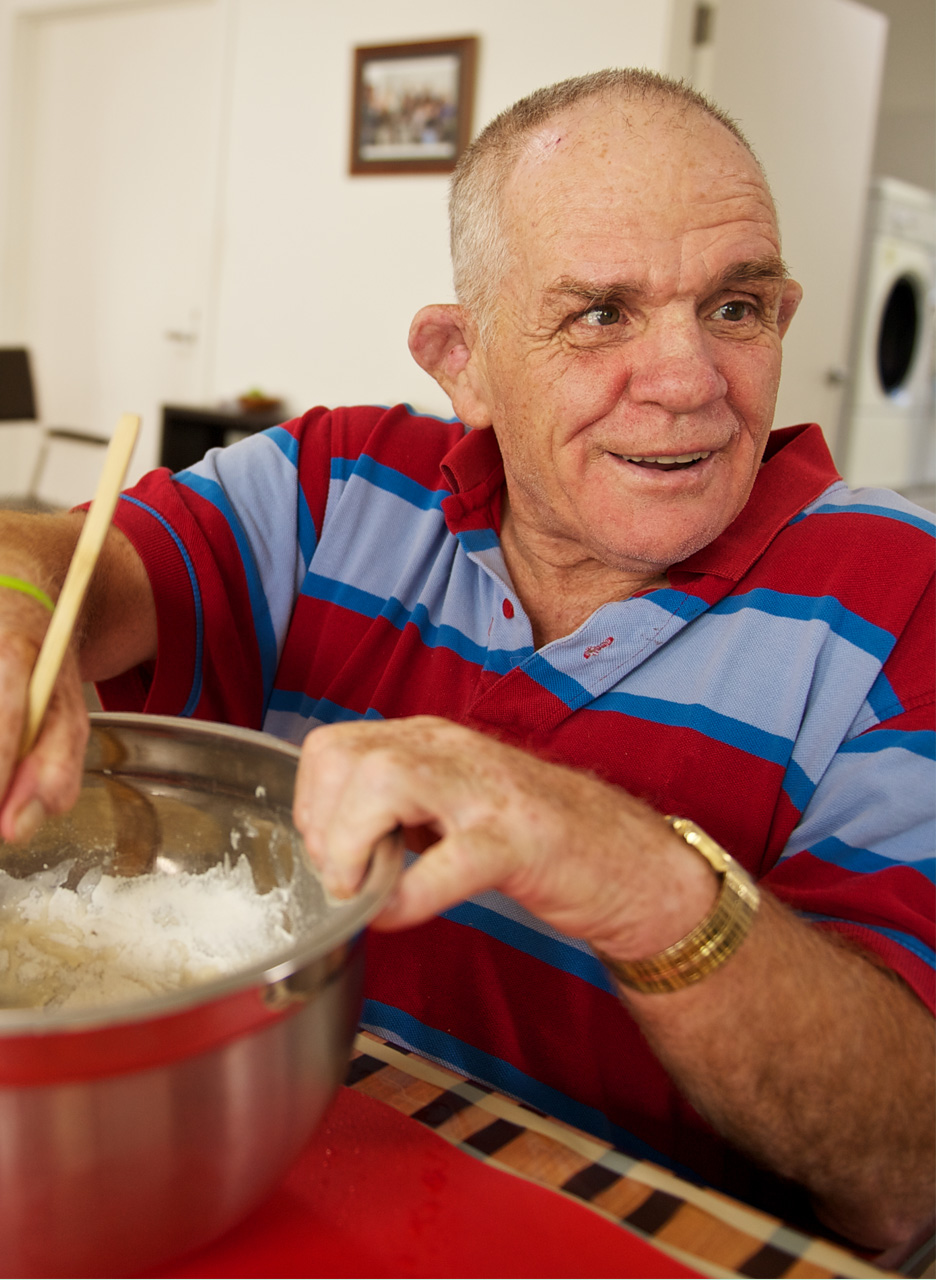
5. Rights:
- Uphold and promote the rights of individuals, ensuring they are aware of what they are entitled to.
6. Equality and Diversity:
- Respect and value the diversity of individuals, recognising and appreciating differences such as culture, religion, gender, and abilities.
7. Safety:
- Ensure that individuals are protected from harm, abuse, and neglect.
- Provide a safe and secure environment where individuals feel protected and cared for.
8. Partnership:
- Work with individuals, their families, and other professionals
- Value the input and perspectives of everyone involved in the care process.
9. Accountability:
- Take responsibility for actions and decisions.
- Reflect on practice and continuously seek to improve the quality of care provided.
Respect the right of individuals to make choices about their care and support.
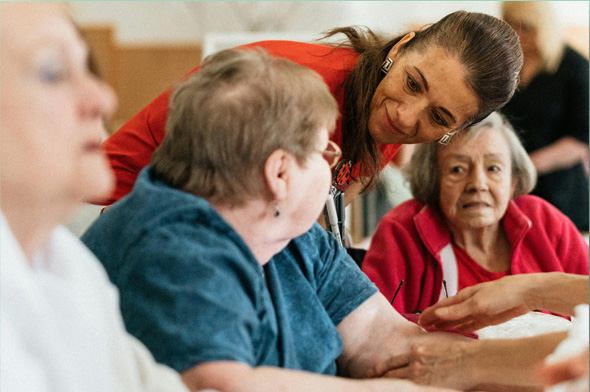
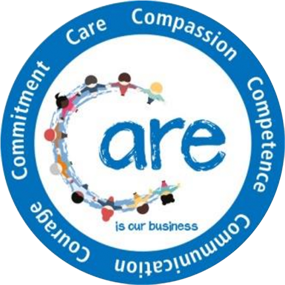
The 6Cs were originally introduced by the UK’s National Health Service (NHS) to ensure that care is compassionate and centered around the needs of individuals. They now underpin quality social care provision too. Here’s an overview of each of the 6Cs:
Make a note
What values make up the 6Cs?
Care
Ensuring that care is safe, effective, and centered around the person receiving it.
Compassion
This involves understanding what others are going through and showing kindness and respect.
Competence
This means having the necessary skills, knowledge, and qualifications to provide effective care.
Communication
This includes listening actively, speaking clearly, and using language that is appropriate and accessible.
Courage
This involves speaking up for what is right and promoting the best interests of those in care.
Commitment
This includes dedication to providing the best possible care and promoting the well-being of individuals.
What skills do employers look for?
Everyone working in community social care needs English, number, digital and employability skills, including team work, knowing how to manage their own health and wellbeing, as well as how to plan their personal learning and development. Together these are known as core skills.
Core skills are the skills needed to enable social care workers to provide high quality care, meet sector standards and complete qualifications.
1. English Skills
Include the ability to:
Read, Write, Speak, Listen
They can be used to:
Communicate with people, Write a care plan, Read and follow a risk assessment, Report an incident or accident
2. Number Skills
Include the ability to:
Do calculations, Record numbers, Understand measurements, Use timetables and plan work
They can be used to:
Record fluid intake and outputs, Count medication, Measure and record weight, Calculate staff wages

3. Digital Skills
Include the ability to:
Find and manage digital information, Share personal data digitally, Use digital technology with people using services, Make use of e-learning
They can be used to:
Update digital handover notes, Use remote monitoring systems, Use assistive technologies
4. Employability Skills
Include the ability to:
Problem solve, Work in a team, Plan own learning and development, Manage own health and well-being, Build resilience
They can be used to:
Prioritise workloads, Manage work/home life balance, Respond well to challenging behaviour, Adapt to changing demands at work
Developing these core skills is essential for anyone working in social care. They enable professionals to perform their duties effectively, communicate clearly, and provide high-quality care to those in need.

Did you know?
According to a Skills for Care report, there is a growing need for social care workers to develop digital skills to enhance care delivery. The COVID-19 pandemic accelerated the adoption of digital technology in the social care sector.
Make a note
What are English skills needed for in residential social care?
Why careers in Community Social Care are important
Careers in community social care play a crucial role in supporting some of the most vulnerable members of our society.
Here are several reasons why these careers are essential:
1. Supporting Vulnerable Populations
Residential social care workers provide vital support to individuals who cannot live independently, ensuring they receive the care they need.
2. Improving Quality of Life
By offering personalised care and emotional support, residential social care workers significantly improve the quality of life for individuals. They help create a safe environment where individuals can thrive, feel valued, and maintain their dignity.
3. Providing Emotional Support
Community social care workers offer emotional support, companionship, and a listening ear, helping individuals cope with their feelings and build resilience.
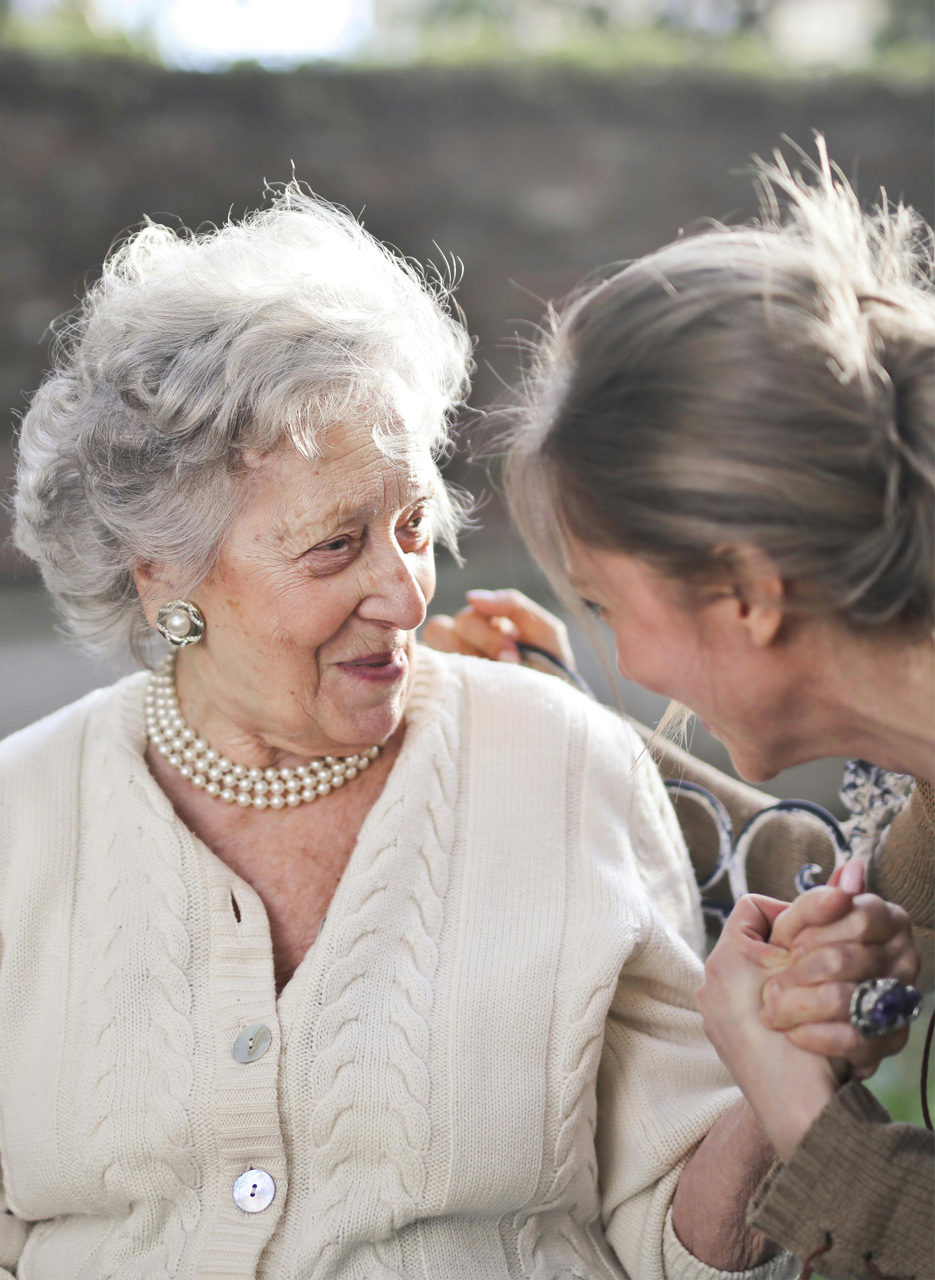
4. Ensuring Safety and Well-being
Community social care workers are trained to recognise and respond to signs of abuse, neglect, or health deterioration. They play a critical role in safeguarding individuals’ well-being, ensuring that they are safe, healthy, and protected.
5. Meeting Growing Demand
As the population ages and the need for social care services increases, the demand for qualified social care workers continues to rise. Careers in this field are essential to meeting this growing need and ensuring that all individuals receive the care and support they require.
6. Supporting Families and Communities
Residential social care workers provide much-needed relief and support to families who may struggle to care for their loved ones at home. By offering professional care, they enable family members to balance their responsibilities and maintain their own well-being.
By offering personalised care and emotional support to individuals in their own homes, community social care workers significantly improve the quality of life for individuals.

Did you know?
Community social care plays a vital role in preventing hospital readmissions by providing continuous, personalised support to people in their own homes.
Make a note
If individuals are provided with personalised care and emotional support, what does this promote?
Opportunities & Pathways
The UK has around 14,000 domiciliary care providers.
Nearly 1 million people receive domiciliary care across the UK. The UK’s domiciliary care industry employs nearly 665,000 people in total. Domiciliary care job vacancies in England are currently at 13%, over four times the average for all jobs in the UK.
Getting started
You don’t necessarily need any qualifications or previous work experience to get a job in social care. What’s really important is your values and attitude towards working with people who need care and support.
There are some qualifications you might want to do to get a taster of what it’s like to work in the sector:
- Level 1 Award in Preparing to work in the care sector
- Level 2 Certificate in Preparing to work in the care sector
- Level 3 Certificate on Preparing to work in the care sector
Apprenticeships
An apprenticeship is a great way to gain work experience, develop skills, achieve a qualification and earn a wage. They’re a great way into the sector for people of all ages and there are different levels depending on your skills and experience.
Other qualifications
The following social care qualifications can be completed once you start your role, as they are specific to the job you’re doing and the skills you need to do it; these are known as vocational qualifications and are alternatives to an apprenticeship. These qualifications range from level 2 to level 5:
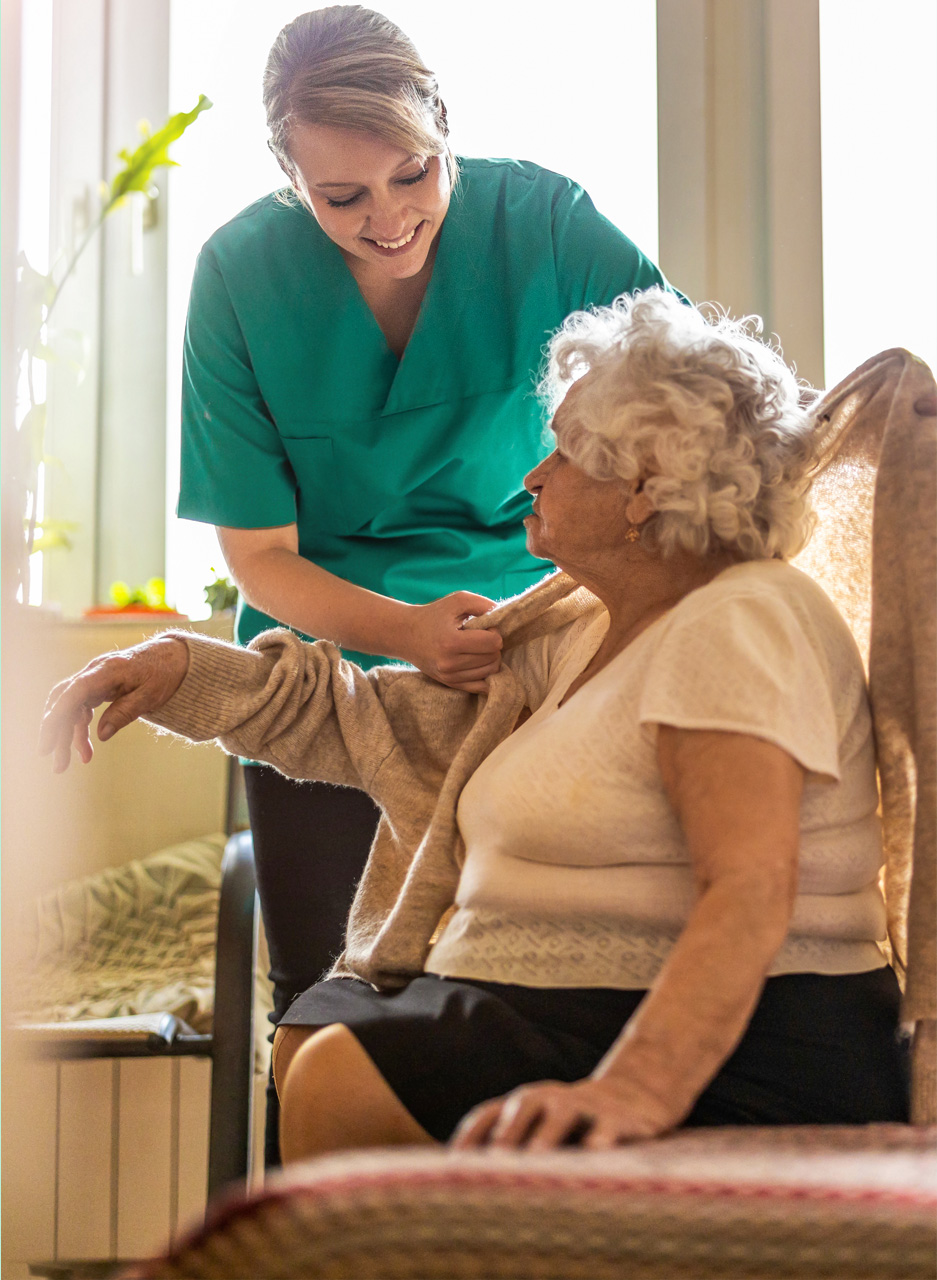
- Level 2 Diploma in Care
- Level 3 Diploma in Adult Care
- Level 3 Diploma in Residential Childcare
- Level 4 Diploma in Adult Care
- Level 5 Diploma in Leadership Management for Adult Care
Example progression pathway (having undertaken relevant training/qualifications)
1/ Care worker – Level 2
2/ Senior care worker – Level 3
3/ Deputy manager/team manager – Level4
4/ Care home manager – Level 5
An apprenticeship is a great way to gain work experience, develop skills, achieve a qualification and earn a wage.

Career Path Questionnaire
This simple questionnaire might help you to identify some career pathways that suit your personal interests and your skills. This questionnaire comes in 2 parts. The first part of this activity is a simple questionnaire.
Using the options in the table below, answer each of the questions by selecting a number in one of the columns, based on the following:
1 = Dislike a lot 2 = Dislike 3 = Don’t Mind 4 = Like 5 = Like a lot
Based on your personal interest and skills, you may be interested in the jobs shown in the highlighted section below.
The role of a
care worker
Roles explored in this course:
TBC.
You scored
in this category.
The role of a
service manager
Roles explored in this course:
TBC.
You scored
in this category.
8 Steps to get you Started
- Make a list of your personal strengths and attributes
- Research the skills that are required for the careers that you are interested in – the Think Care Careers website is a good place to start
- Think about your past experiences and make a list of any skills you have gained, which would be relevant to a career in social care
- Speak with someone from the National Careers Service
- Look at volunteering opportunities in your local area
- Explore apprenticeships in social care
- Look at the community social care job vacancies advertised in your local area
- Prepare for interviews by researching common questions and scenarios you might face



Check Your Knowledge
So now you’re well on the way to understanding about Community Social Care, answer the multi-choice questions below to see how much you really know.
Good luck!
Well done. You have successfully achieved the pass mark for this course. All the correct answers are now shown.
You haven’t achieved the pass mark on this occasion. Have another go.
You haven’t quite reached the pass mark for this course, but all of the correct answers are now shown. Please study these before moving on, or feel free to go back and look again at any of the pages of this course.
Congratulations
You have successfully completed this course.
Exit Course
